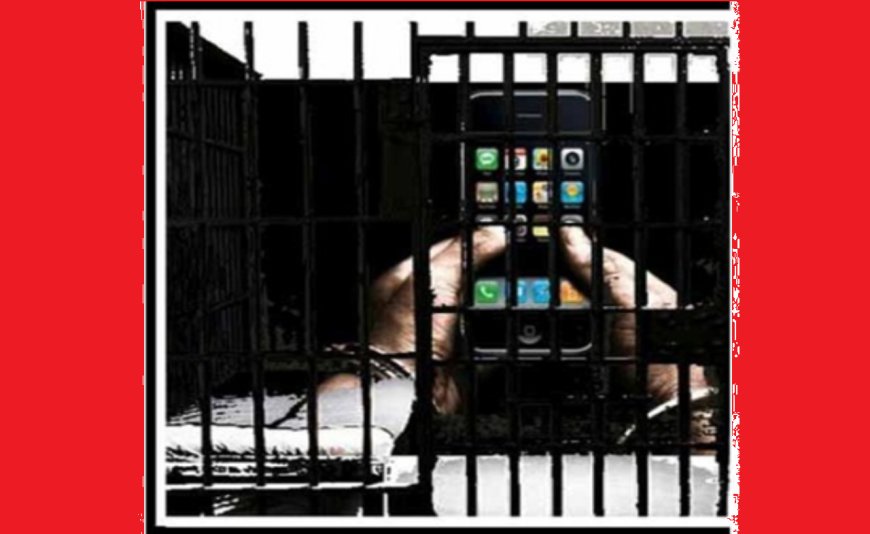Prison Phone Problem: Interim Government Moves to Install Network Jammers

In an effort to curb unauthorized inmate communications from inside prison cells, the interim government of Bangladesh has taken steps to install mobile network jammers in correctional facilities. Inspector General of Prisons Brigadier General Syed Motaher Hossain confirmed that several jails will soon be equipped with jammers to disrupt mobile phone signals.
According to Brigadier General Hossain, despite existing security measures, prisoners often manage to obtain mobile phones with the help of corrupt prison staff or through items thrown over the prison walls. “In just the past nine months, more than 1,000 mobile phones were recovered during surprise searches at Keraniganj Central Jail alone,” he said.
Speaking to a media outlet, the Inspector General remarked, “The phones we recovered are so small, it seems they were manufactured specifically for use inside prisons.” He added that 90 percent of mobile-related issues at Keraniganj have already been resolved.
In addressing the ongoing security concerns, Brigadier General Hossain stated, “We have already held meetings with BTRC and mobile operators to control network access in prison areas. Unfortunately, most jails are located near populated areas, making signal control difficult. As a result, we have taken the initiative to install network jammers in prisons, and several will be operational very soon.”
Officials from the Department of Prisons revealed that among the country's 68 jails, only 13 central prisons have been equipped with somewhat modern technological infrastructure. The remaining 55 district jails lack advanced equipment for inmate management and security, making it difficult to detect contraband. Notably, body and luggage scanners are unavailable in prisons outside the central facilities. Consequently, inmates sometimes smuggle miniature mobile phones or narcotics internally into prison premises.
Reports also indicate that inmates use mobile phones not only within prisons but even during court transfers or within court premises, often with access to devices held by security personnel. According to prison regulations, “It is completely illegal and punishable for any inmate, including those granted division privileges, to secretly use a mobile phone from within the jail.”
While network jammers are meant to be deployed in high-security prisons, earlier reports suggest that most of them remain non-functional. In November last year, rumors surfaced that Salman F Rahman, advisor on private sector affairs to former Prime Minister Sheikh Hasina and head of Beximco Group, was allegedly maintaining contact with Hasina and other Awami League leaders from prison using a mobile phone.
In February this year, a post from the verified Facebook account of Lt. Col. (Retd.) Faruk Khan, a presidium member of the Awami League and former Minister of Civil Aviation and Tourism, went viral while he was reportedly in custody. Most recently, on June 6, news broke that Jhenaidah District Awami League General Secretary Saidul Karim Minu was using an Android phone while incarcerated. Following the revelation, the prison authorities transferred him from Jhenaidah jail in a discreet operation, triggering widespread uproar.
Reports suggest that many incarcerated leaders of the now-banned Awami League have been using mobile phones to maintain contact with party operatives, allegedly aiming to destabilize the interim government.









































































































































































































